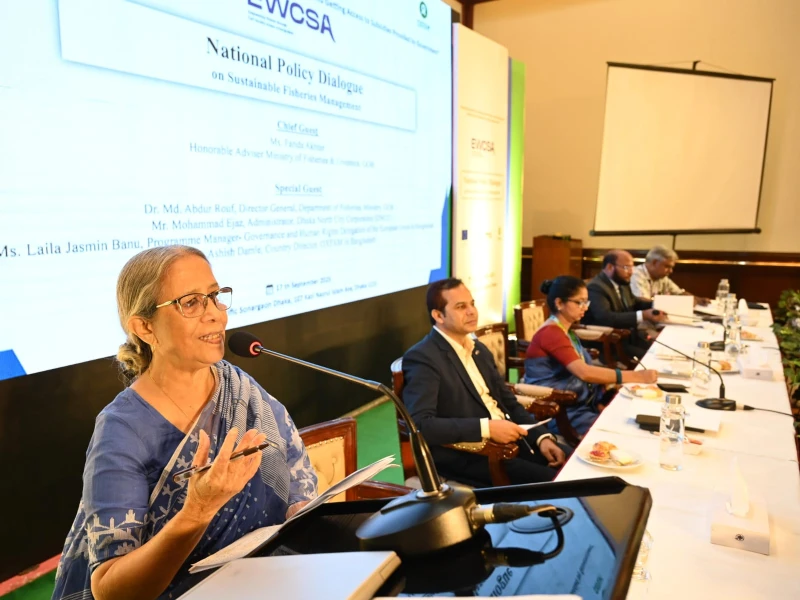Fisheries and Livestock Adviser Farida Akhter said women engaged in fishing must also be brought under the fisher card facility alongside men.
Currently, fisher cards are issued mostly in the names of male fishermen, while only about 4 percent belong to women. In reality, fishing involves the entire family, and in many cases, women contribute even more. Therefore, women must be given fisher cards as well, she said.
The adviser was addressing a national policy dialogue on sustainable fisheries management organised by the Centre for Natural Resource Studies (CNRS) at a hotel in the capital on Wednesday.
She pointed out that women still struggle to gain recognition as farmers, and female fishers face even greater neglect.
Women go fishing in rivers to support their families, and many of them run households in the absence of their husbands. Yet, laws and facilities rarely account for their contributions, she said.
Highlighting the legal challenges, she noted that when fishermen die or go missing in storms at sea, their wives cannot withdraw bank deposits or access widow allowances due to documentation gaps.
Such legal complications must be resolved, Farida added.
She observed that most of the country’s laws are designed with men in mind, leaving little space for women. The draft Fisheries Act 2025 is being prepared to address these gaps, she said.
Farida also mentioned that earlier investigations had found non-fishers holding fisher cards, but those cards have since been cancelled.
We want genuine fishers to get the cards. In every household where a man has a fisher card, a woman should also be included, she said.
On the issue of support during the fishing ban period, the adviser said the number and allocation of VGF cards often fall short. Discussions are underway with the finance ministry to expand the coverage, she added.
Speaking as a special guest, Fisheries Department Director General Dr. Md. Abdur Rauf said female workers in the sector receive 30% lower wages than men.
He also called for replacing the current revenue-based leasing of water bodies with a “jal jar jola tar” (those with nets should control the water bodies) policy.
He stressed the need for proper birth registration and NID cards to ensure fisher card eligibility.
Currently, among the 1.7 million registered fishers, only 44,000 are women. We must increase this number, he added.


 Prev Post :
Prev Post :
